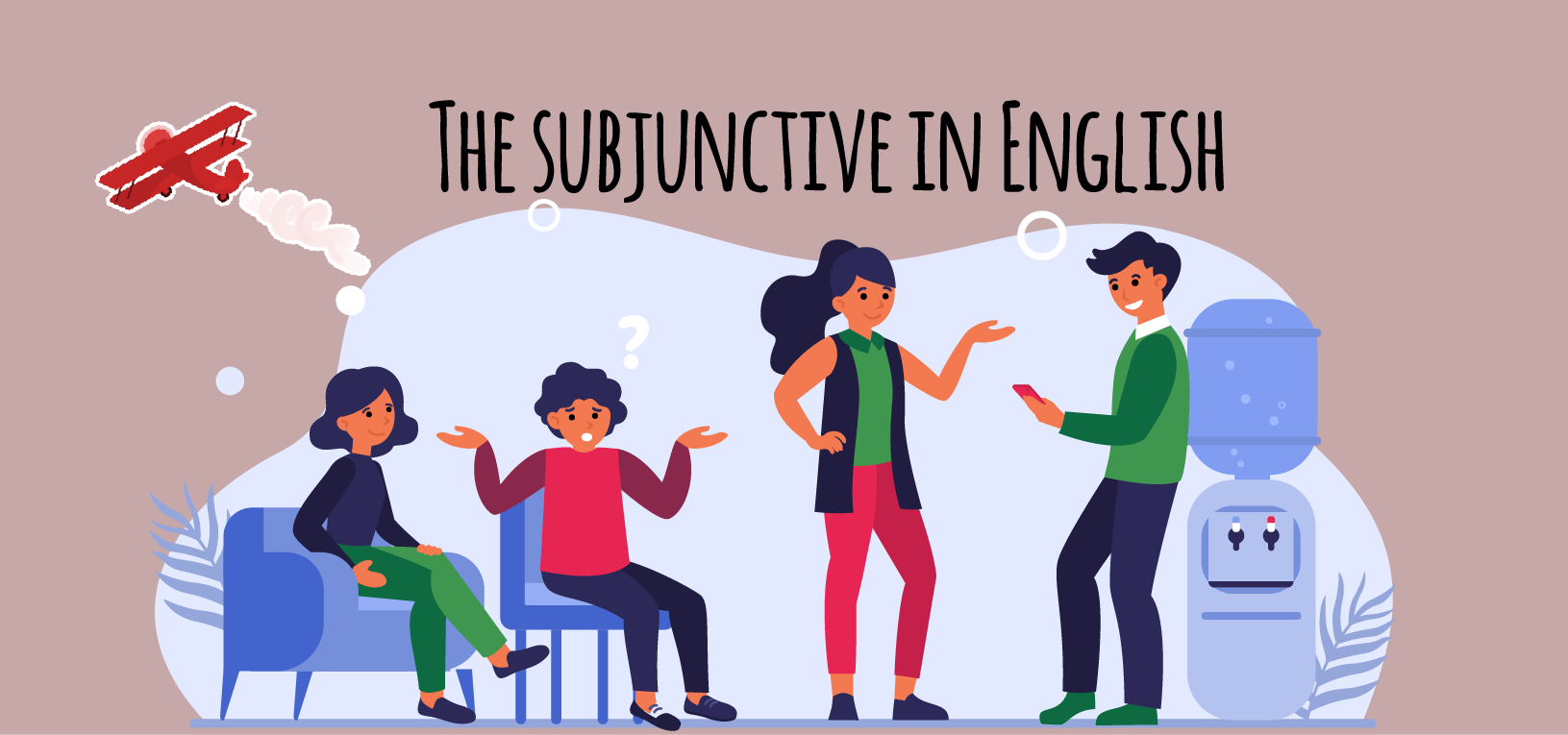The subjunctive in English

The subjunctive in English
ÍNDICE DE CONTENIDOS
The subjunctive in English is a verb form used to talk about unreal situations. In the English language, the subjunctive is not very common. There is also the idea that the English subjunctive has no real existence as such. Instead, modern English users often use modal verbs like would and should .
The “subjunctive” is used occasionally in sophisticated or literary language , especially in American English and in some established phrases and expressions. Finally, the subjunctive is used to express intention or proposal about the future. It requires the use of the verb in its basic form instead of its normal tense form.
English subjunctive conjugation
To conjugate the subjunctive in English, the base form of the verb is used. This means that no -s is added in the third person singular and the verb be is not conjugated.
The subjunctive is hardly used in contemporary English unless we want to pass for being very formal . With verbs like suggest, recommend, insist (sugerir, recomendar, insistir) and adjectives like important, essential, imperative, crucial, vital (importante, esencial, imperativo, crucial, vital), we often use must + infinitive (debe + infinitivo) instead of the subjunctive o we can also use the normal tense form. Informational verbs and adjectives above are usually followed by a clause which is often omitted.
Also compare the following:
- The doctor recommended (that) I quit smoking. El médico recomendó (que) dejara de fumar.
- The doctor recommended (that) you stop smoking. El médico le recomendó (que) dejara de fumar. (Más formal)
- The doctor recommended (that) I quit smoking. El médico recomendó (que) dejara de fumar. (Menos formal)
The subjunctive in English is used for:
- To say that something is requested or recommended.
Example: The report recommends that I avoid * eating certain types of food. (The report recommends that you avoid eating certain types of foods)
- Express wishes or hypothetical situations.
For example: If only I were in Paris with you . (Si solo estuviera en París contigo)
- With modal verbs:
May / might
It may not rain tonight. (Puede que no llueva esta noche)
He might arrive on time. (Puede que (él) llegue a tiempo)
Should
It’s important that she should sign the documents today. (Es importante que ella firme los documentos hoy)
Wish
I wish I were rich (Ojalá fuera rico)
As you can see , the ‘s’ is not added in the third person singular in the subjunctive constructions. These structures include the use of with the following words: – suggest; recommend; ask; insist; vital; essential; important; advice; and ‘that’ is added:
- It is vital that he concentrate on his exams. (Es vital que se concentre en sus exámenes)
- He insisted that the dog go in the back of the truck. (Insistió que el perro fuera en la parte trasera del camión)
In this sentence it can be observed , in this case, the subject I is accompanied by the form were, which does not correspond to the one that the verb be has for the first person and third person singular ( I, it, he, she ) in indicative mode, that would be was. Especially after ‘ if ‘ and ‘wish’, as if / as though.
- If I were a millionaire I would live in Rome. (Si yo fuera millonario viviría en Roma)
- I wish your father were alive to see you. (Ojalá tu padre estuviera vivo para verte)
- He talks to him as if he were your slave! (¡Le habla como si fuera tu esclavo!)
- Some people behave as though dogs were their children. (Algunas personas se comportan como si los perros fueran sus hijos)
When the sentence is negative, do not use ‘”do”
- It was advised that students not bring telephones to classrooms. (Se aconsejó a los estudiantes que no trajeran teléfonos a las aulas)
- It was recommended that he not return to work until fully recovered. (Se recomendó que no volviera al trabajo hasta que se recuperara por completo)
The verb “to be” has special forms for the subjunctive (I be; you be; we be, they be etc.)
- The lady insisted that she be placed in front of the line / The lady insisted to be placed in front of the line. (La señora insistió en que la colocaran delante de la fila)
There are expressions / phrases made with the subjunctive
- God save the Queen. (Dios salve a la reina)
- Heaven forbid. (El cielo no lo quiera)
- Long live the king. (Larga vida al rey)
- God bless you my son. (Dios te bendiga hijo mío)
- So be it! (¡Que así sea!)
- Be that as it may. (Sea como fuere)
- Come what may. (Pase lo que pase)
- I wish you were here. (Desearía que estuvieras aquí)
- “If he wants to waste his money on that girl, then so be it!”
Conclusion
The conjugation of the verb in the subjunctive mood for many does not exist in English . Generally, to express the equivalent to the Spanish subjunctive mood, auxiliary forms are used, the use of the verb to be and some compound structures that fulfill the same function in a more simplified way. The subjunctive in English expresses unlikely situations, hypothetical or doubts, wishes, advice and orders, among others.
Finally, we remind you that if you are thinking of obtaining an official degree here we leave you the number 1 online registration platform


